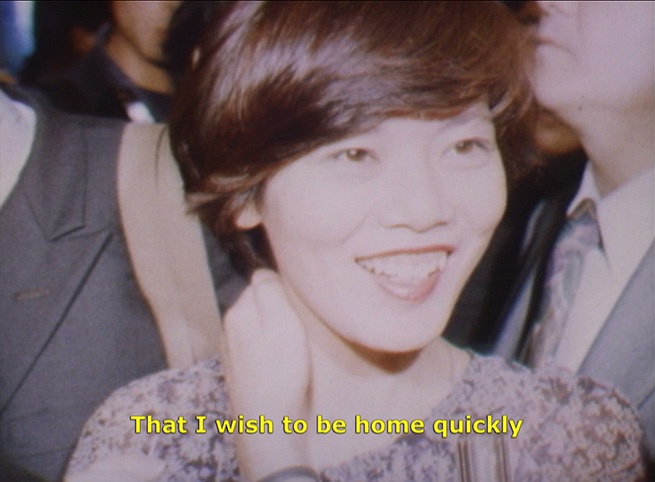The Young Man Was project examines the failures of radical, armed leftist movements of the 1970s. The protagonists often display misrecognition, ending up as an "accidental trojan horse" carrying tragic results to the countries in question (from Japanese hijackers commandeering Dhaka airport for "solidarity," to migrant labor pipelines transformed into PLO "volunteers"). In spite of its failures, Mohaiemen's reading of the potential of international left solidarity is still, always, one of hope. The first part (United Red Army, 2011) reconstructs the 1977 hijacking of Japan Airlines Flight 472 through a series of crisply polite negotiation tapes. The second film (Afsan’s Long Day, 2014) addresses the misrecognition of Marxist ideologies from the perspective of a young historian (Afsan Chowdhury, whose diary entry gives the series its name), slaloming between Bangladesh’s summer of tigers, and the German Autumn associated with the Rote Armee Fraktion. The third film (Last Man in Dhaka Central, 2015) traces, in reverse, the journey of Peter Custers, a Dutch journalist jailed in Bangladesh in 1975, accused of belonging to an underground armed Maoist group. A more recent short film, Abu Ammar is Coming (2016), digs into the illusions of a press photograph of “PLO fighters” taken by Chris Steele-Perkins for Magnum.
In the form of Peter Custers, who unfortunately passed away in 2015, many of the questions of The Young Man Was project take a personal form. What lies behind utopian hope, especially within the idea of socialism, against the weight of history and experience? What also of the men who survived those terrible times, unlike so many of their comrades, and now spend their waning days in solitary apartments, writing down memories? What was such a man then, and how does he remember himself today? Was he John Reed, recording the Russian Revolution, in the last free moment before the Thermidor? What does it mean to be a survivor and witness—the last man standing on the eve of another collapse, surveying the wreckage of the socialist dream in the middle of a horrific present that teeters on the cusp of the Anthropocene?



